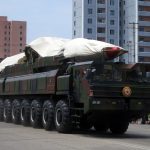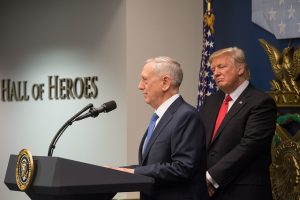While most other news has been justifiably overshadowed by the rapidly developing events in Egypt, a report on a discussion at the World Economic Forum in Davos is worth calling attention to.
A panel, which included “card carrying realist” (although I challenge that label) Richard Haass, who currently serves as president of the Council on Foreign Relations, agreed that “a military strike could spark a huge counterattack,” according to an AP report.
In the debate at the World Economic Forum, former top U.S. diplomat Richard Haass said there were no good options should diplomacy fail, but stood apart from the others in advocating force as a viable option. He sparred repeatedly with Saudi Arabia’s Prince Turki al-Faisal, who urged the United States to instead pressure Israel to quit its own reported nuclear weapons as a way of coaxing Iran to drop its suspected weapons program as well.
There was some disagreement on the panel between those like Turkish Deputy Prime Minister Ali Babacan, who held that Iran’s nuclear program might be civilian, and more hawkish voices, like Haass, who contended, “This is about a sustained Iranian commitment to either develop nuclear weapons or get 90 percent of the way there.”
The AP reported:
Babacan argued that “there is a huge misunderstanding between the Western world and some in the (Middle East) and Iran. … Marginalizing Iran more and more, or cornering them more and more … is not going to give any kind of (solution).”
The entire panel seemed to agree that an Iranian response to a strike on nuclear facilities would be a nightmarish scenario.
Khalid Al Bu-Ainnain, a former top Gulf military official, said Iran would “attack Israelis and U.S. forces in the Gulf” and the Gulf states might be drawn in as well.
Turki, a former Saudi intelligence chief who is a brother of Foreign Minister Prince Saud al-Faisal, said that “Iran will strike back wherever it can, throughout the globe. My country and other countries — all countries — will be in the firing line. Iran has assets all over the world that it can use.”
Guttenberg said Europe may get drawn in: “The (Middle East) is on fire and then … we will have European discussions on being involved, yes or no. This is a sheer disaster. … Let’s try to avoid it diplomatically.”
Not to be outdone, Haass added that Iran might interfere with the flow of oil as well.





Well, at the least the International Society of Fat Cats is on the right side of this issue.